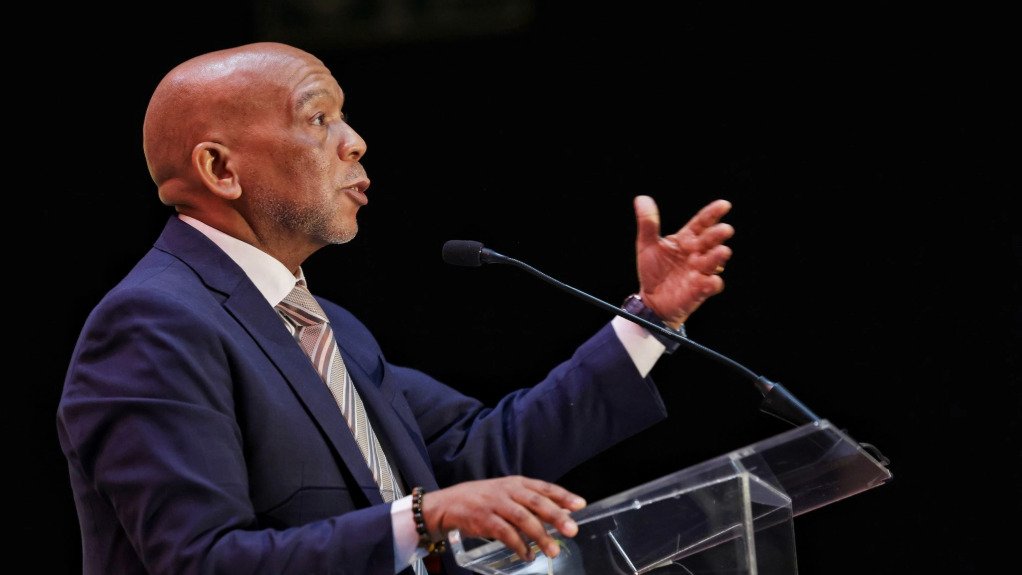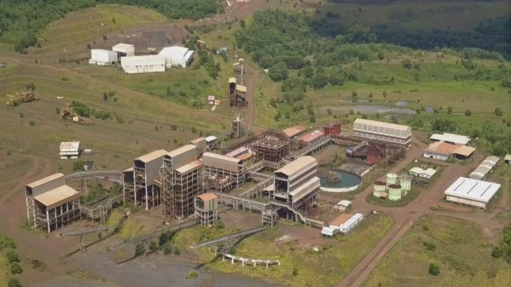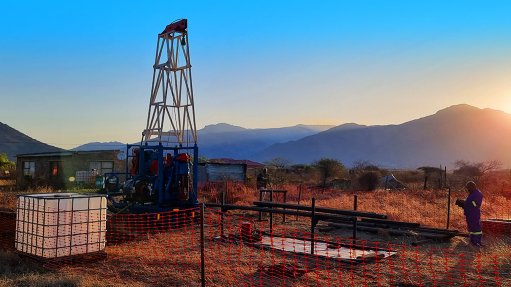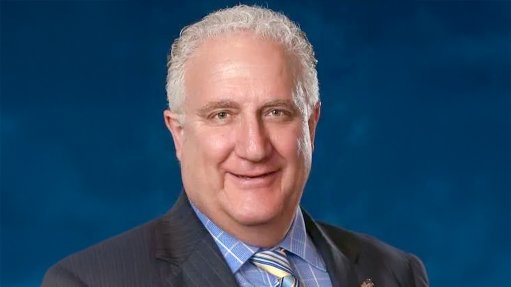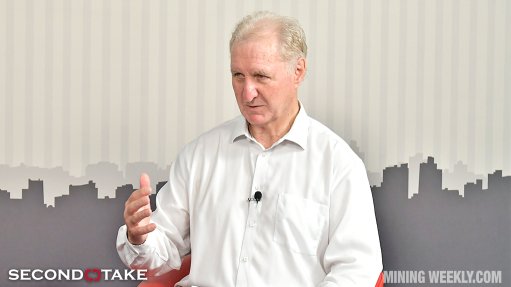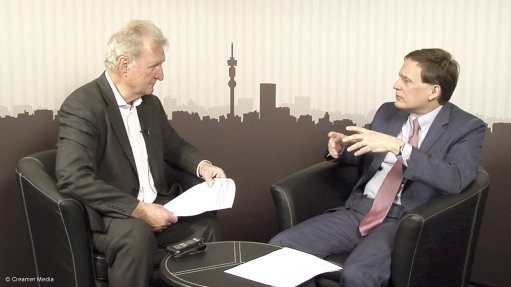Minister’s ‘State will lead, market will follow’ electricity assertion raises questions
Electricity and Energy Minister Dr Kgosientsho Ramokgopa’s insistence that the State will lead and the market follow in the procurement of new electricity generation, while simultaneously indicating that any new investment will be “off balance sheet” for government and, thus, funded by the private sector, has raised questions.
The Minister made the statement at a briefing held to release details of the updated Integrated Resource Plan (IRP 2025), which he argued set the policy framework and that “everyone will procure according to this policy”. This, while also acknowledging that policy adjustments had been made that resulted in the plan deviating from a least-cost outcome.
In response to a question posed by Engineering News regarding the role of the soon-to-be-launched South African Wholesale Electricity Market (SAWEM) in facilitating further generation investments by independent power producers (IPPs) and Eskom Generation, Ramokgopa argued that government would not rely on the market for security of supply.
“We will not follow the market, we will lead the market. The State will never relinquish its responsibility to lead in our quest to ensure that there's energy security. That's the role of the State exclusively, and then others will participate to help the State to achieve that ambition,” the Minister asserted, while restating his preference for mega-scale procurement bid windows overseen by the IPP Office.
South African Independent Power Producer Association (SAIPPA) chairperson Leoné Human questioned what this meant for the market being developed by the National Transmission Company South Africa and which is expected to be launched in 2026.
“The Minister stated that the State will lead and will not follow the market, and there will be no State funding, it will be off balance sheet and the offtaker will fund. What does this mean for SAWEM? Does this suggest that the market has already failed before it's launched?” Human asked in response to an Engineering News request for her reaction.
Emeritus Professor at UCT’s Power Futures Lab, Anton Eberhard, said Ramokgopa had admitted that the State did not have the money to fund new generation, which would, thus, be financed largely by private developers and banks.
“That means what gets built must be financially competitive and sustainable, and must be bankable. Within that context, the IRP is not terribly important. It is not a least-cost plan. Some technologies have been forced into the plan. In reality, the market will fund those technologies that are competitive and bankable,” Eberhard told Engineering News.
He noted, too, that the Electricity Regulation Amendment Act recognised that reality and hence referred to the IRP as an indicative plan.
“Unfortunately the Minister and his department are still in the old fashioned dirigiste mode – they consider the IRP as deterministic, [whereby the] Minister determines what should be built, how much, where, when and by whom. But the State has a very poor record in this.”
Eberhard highlighted that government had tried and failed to procure new nuclear since 2008, while its various attempts to get gas going had also been poorly formulated to the point where practical investment paths had been frustrated.
“The only success we have seen in recent years with new generation investments is hundreds of billions of private investments going into solar, wind and batteries. It would be better for the Minister to accept that the plan is merely indicative, to create the enabling environment for investment, to get transmission out of Eskom so that grid expansion and access are accelerated, and to step into the planning and procurement space only when there are market failures,” Eberhard argued.
Meanwhile, Human said that SAIPPA was also concerned that the IRP 2025 did not live up to its stated objective of giving energy security while also minimising the total cost of supply.
“The Minister stated that the R2.2-trillion investment plan would be off the government balance sheet, but the plan includes nuclear, which cannot be funded without impact on the balance sheet or becoming beholden to foreign powers, thus eroding energy sovereignty,” she argued.
“It is also not clear whether the old coal plants would be decommissioned as we end up with the current 41 GW in 2039. A concerning point is the small percentage that distributed generation plays by 2039 at only 8%. This, in our view, indicates a return to central planning and control and is opposed to the stated policy of a competitive electricity market,” Human added.
GREATER CERTAINTY
However, SA Oil & Gas Alliance (SAOGA) chairperson Craig Morkel was more sanguine, indicating that the organisation supported the policy-adjusted IRP 2025.
He said it provided greater certainty about the capacity and timing of connecting a mix of electricity generation facilities that responded to the “energy quadrilemma” of supply security, affordable access, sustainability and socioeconomic development.
“The harmonisation of these four competing imperatives is always going to be debatable, but it is accepted that the least-cost approach does not on its own optimally contribute to inclusive growth without a deliberate decision to localise the assembly or manufacturing of certain designated items where South Africans have the necessary capabilities and capacity to earn their share of revenues that would otherwise flow out of the country as import costs,” he added.
Morkel was also supportive of the IRP's prioritisation and sequencing, with the first phase focusing on the importation of liquefied natural gas (LNG) and the exploration and development of what he described as 22-trillion cubic feet of conventional shallow gas in and around South Africa’s coal fields, in addition to possible new discoveries in the Orange basin, straddling the country’s maritime border with Namibia at the mouth of the Orange river.
“Such domestic gas is much cheaper than LNG imports, and therefore will become the primary source of gas supply in the second phase (2030-2039) and beyond, especially if government’s clean coal and nuclear research, development and commercialisation programmes do not result in feasible or viable solutions.”
However, EE Business Intelligence MD Chris Yelland has questioned whether the IRP 2025’s 6 GW gas allocation to 2030 can be realistically built within the timeframe outlined, with Ramokgopa also acknowledging that it would be difficult to achieve.
Besides the absence of the import, gasification and pipeline infrastructure required for the gas-to-power (GtP) plants, there have been delays in the initial procurement of 2 GW of GtP capacity despite the launch of a procurement programme, while there are also reports of growing lead times for the delivery of gas turbines.
Morkel noted that SAOGA was now keen for the development of an “execution approach” for each technology in the IRP 2025, including gas.
“For gas, we will need to develop an execution approach for each gas corridor, including gas supply and gas to power, besides transport, commercial and industrial offtake. The execution approach should balance supply and demand within each gas corridor, using right-sized gas supply infrastructure.”
Morkel added that this execution approach would determine the requirements for the design, development, financing, procurement, construction and operations and maintenance of the required downstream gas facilities and the associated midstream and later upstream infrastructure.
“We believe that the policy-adjusted IRP represents a good compromise between the four competing imperatives [of the energy quadrilemma], as enjoined by Section 24 of the South African Constitution that requires the harmonisation of both developmental and environmental imperatives.”
Article Enquiry
Email Article
Save Article
Feedback
To advertise email advertising@creamermedia.co.za or click here
Announcements
What's On
Subscribe to improve your user experience...
Option 1 (equivalent of R125 a month):
Receive a weekly copy of Creamer Media's Engineering News & Mining Weekly magazine
(print copy for those in South Africa and e-magazine for those outside of South Africa)
Receive daily email newsletters
Access to full search results
Access archive of magazine back copies
Access to Projects in Progress
Access to ONE Research Report of your choice in PDF format
Option 2 (equivalent of R375 a month):
All benefits from Option 1
PLUS
Access to Creamer Media's Research Channel Africa for ALL Research Reports, in PDF format, on various industrial and mining sectors
including Electricity; Water; Energy Transition; Hydrogen; Roads, Rail and Ports; Coal; Gold; Platinum; Battery Metals; etc.
Already a subscriber?
Forgotten your password?
Receive weekly copy of Creamer Media's Engineering News & Mining Weekly magazine (print copy for those in South Africa and e-magazine for those outside of South Africa)
➕
Recieve daily email newsletters
➕
Access to full search results
➕
Access archive of magazine back copies
➕
Access to Projects in Progress
➕
Access to ONE Research Report of your choice in PDF format
RESEARCH CHANNEL AFRICA
R4500 (equivalent of R375 a month)
SUBSCRIBEAll benefits from Option 1
➕
Access to Creamer Media's Research Channel Africa for ALL Research Reports on various industrial and mining sectors, in PDF format, including on:
Electricity
➕
Water
➕
Energy Transition
➕
Hydrogen
➕
Roads, Rail and Ports
➕
Coal
➕
Gold
➕
Platinum
➕
Battery Metals
➕
etc.
Receive all benefits from Option 1 or Option 2 delivered to numerous people at your company
➕
Multiple User names and Passwords for simultaneous log-ins
➕
Intranet integration access to all in your organisation



